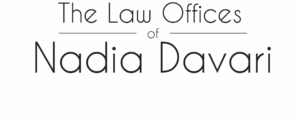 When you are selling a t-shirt, making your film, T.V. project, website, digital content, writing your script or designing a mug you may want to use a piece of content or work that someone else created that is not in the public domain. Do you need to first ask the owner before you can use it? Not always. A work doesn’t have to be in the public domain for you to use it without licensing it or asking the permission of the owner. So before deciding that you cannot afford to pay for any additional costs, it may behoove you to consider if your use of such material is considered fair use.
When you are selling a t-shirt, making your film, T.V. project, website, digital content, writing your script or designing a mug you may want to use a piece of content or work that someone else created that is not in the public domain. Do you need to first ask the owner before you can use it? Not always. A work doesn’t have to be in the public domain for you to use it without licensing it or asking the permission of the owner. So before deciding that you cannot afford to pay for any additional costs, it may behoove you to consider if your use of such material is considered fair use.
In some special situations and for certain purposes, to promote freedom of expression, the legal concept of “fair use” of the U.S. Copyright Act (“Copyright Code”) will allow you to use and reproduce the copyright protected materials and works of others without requesting permission and without paying a licensing fee or royalty. The Copyright Code states the legal guidelines for determining whether something is a fair use and provides examples of activities that may be considered as fair use. Some examples of such activities include review, criticism, comment, news reporting, teaching, parody, or scholarly research. While this may sound like a panacea, there are limitations.
Section 107 of the Copyright Code, Limitations on exclusive use, describes the following four factors in evaluating and determining whether a work is considered fair use or not?
- The purpose and character of the use, including whether such use is of commercial nature or is for non-profit educational purposes;
- The nature of the copyrighted work;
- The amount and substantiality of the portion used in relation to the copyrighted work as a whole; and,
- The effect of the use upon the potential market for, or value of, the copyrighted work,
Also, just because a work is unpublished it does not itself mean your activity is not fair use if such finding is based upon all the above referenced factors.
It is important to know that the limits of fair use are not always clear. Fair use may, or may not, include the derivative work or the reproduction of an image or a record you give to a friend or a family-member as a present. It can get complicated as there is no formula to make certain that a predetermined percentage of or amount of a work, image, specific number of musical notes, pages, words, copies or lines may be used without permission. Also, crediting the copyright owner in your derivative work, i.e. new original work based on or derived from one or more already preexisting works, does not suffice nor does it relieve you from the obligation of obtaining the copyright owner’s permission.
Obtain the advice of an experienced attorney before using or profiting from any copyrighted work of others. Fair use cases are determined by the courts on a case by case basis and the outcome is based on the facts of each such case. If a copyright owner believes your use of their material is not fair use, the owner may bring a legal action, a long and expensive process for everyone. It may be just faster, more cost effective, and simpler to request the permission of the copyright owner. When in doubt about whether a particular activity is considered fair use of a copyrighted material of another, you should consult with counsel. Preferably, individuals and businesses who want to utilize copyrighted materials obtain permission from the copyright holder first or hire someone to create new and original materials for them.
DISCLAIMER: This article is for general information only. It’s not legal advice and doesn’t create an attorney-client relationship. This information is provided “as is” without warranty or representation of any kind. You should contact an attorney for legal advice. This information may not be applicable to your situation, or may be outdated, or laws may have changed, or the information may otherwise be unreliable, or may be subject to exceptions and qualifications, which may or may not be noted or stated and laws vary by jurisdiction. You shouldn’t act or rely on this information without seeking advice from a lawyer and receiving professional counsel based on your particular situation or delay or forego seeking legal advice or disregard professional legal counsel based on this article. Delay in seeking such legal counsel could result in waiver of any claims you may have. You acknowledge and agree that this information is not intended as a solicitation and you use this information at your own risk and we’re not liable under any circumstances, at any time in any way or for any damages of any kind or under any theory, resulting from this information, or your use of such information or any reliance on or access to this information, including but not limited to liability or indemnity or damages under tort or contract or any damages caused by viruses in this file, despite giving notice.